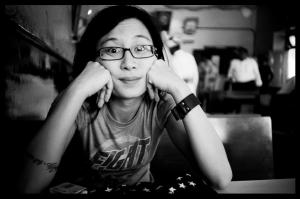One of the most significant changes in the international ICT policy landscape since 2004 and from APC’s perspective, a very valuable one, was the creation of the Internet Governance Forum (IGF). The IGF was an outcome of the WSIS. It is an annual international meeting, open to anyone who is interested in the governance of the internet, and provides a space for discussion and debate on public policy issues for all stakeholders in an environment that is, at least in theory, equal to all. It provides a kind of “pressure relief valve” for some of the most controversial internet governance issues, allowing actors with quite radically different and often opposing views to come together in an environment that is in the main respectful and constructive.
Although APC cannot claim a major role in its creation, we can claim a significant one relative to our capacity and resources. The IGF’s origins lie in deadlocked debates between governments on internet governance issues, which dominated the latter stages of the WSIS process. This led to a recommendation by governments to form a working group which would make proposals for how the international community could best address this complex area of public policy. APC was nominated by our peers to be a member of this group –-which eventually comprised 40 or so individuals from government, business and civil society – and along with other civil society actors was instrumental in formulating one of the final recommendations, that a forum be established.
Work did not end with the recommendation itself; it was then left to governments to discuss the proposal during the Tunis Summit in 2005, with many governments and private sector and technical community actors being opposed to the forum’s formation. APC was very active in lobbying – along with civil society – for the forum’s creation. In the four years of the forum’s existence, APC has been a constant in the IGF process, actively involved in everything from nomination, formation, participation and renewal of the IGF’s multi-stakeholder advisory group; participating in every consultation (which take place February, May and September every year) and annual forum; bringing a substantial team of members, partners and staff to the annual forum; collaborating with all stakeholders to organise workshops, contribute to main session planning, support national and regional interim processes, and so on.
An inclusive and multi-stakeholder challenge
The IGF is probably best known for, or characterised by, its multi-stakeholder nature. Multi-stakeholder processes are probably the most challenging aspect of the IGF. Learning to listen to traditional adversaries, understanding different perspectives and seeking common solutions to complex problems, without losing sight of closely held values and principles, have not always come easily to an international rights-based NGO with a broad activist membership base like APC. Yet the solution to many of the challenges APC deals with in relation to ICT policy issues relies on the active involvement of a wide range of stakeholders. APC has largely supported the multi-stakeholder approach in the IGF, and in general we feel that the relationships we have forged with business, government, the technical community and so on have contributed to achieving APC’s goals in the IGF process in relation to the relatively “safe” issues of access to infrastructure in particular and capacity building.
However, the same degree of comfort cannot be said to exist in relation to more emotive and politically sensitive issues such as human rights, privacy protection, censorship of content and so on. Here actors still tend to fall back into their respective camps (though this is not necessarily a bad thing, it is very early in the process). Developing a shared vision on the universal application of human rights to the internet is a monumental undertaking. Momentum has been building around the IGF incorporating human rights more centrally in its work agenda, but we imagine that it will still be some time in coming.
Helping reality hit home
There are many small stories within this large story. The IGF has provided a useful entrée to the world stage for our members in Pakistan, the Philippines, Kenya and Bangladesh, to name a few. It has provided a similar entrée for the APC women’s programme, who until the IGF had tended to stay within women’s movement spaces. Jac sm Kee
Jac sm Kee
Image: “In a country where abortion is illegal, the internet becomes a critical space to find out more about […] what kind of decisions you can make about your own body.” – Jac sm Kee’s intervention changed the orientation of the “harmful content” discussion. Photoby Ezrena Marwan
One of the most memorable moments in the 2008 IGF was hearing APC’s Jac sm Kee explaining from the main plenary podium that women are often prevented from accessing important content on health and reproductive and sexual rights because of the content regulation policies being promoted. She left several panelists who were espousing paternalist views on protecting women and children from harmful content without a strong argument. Jac’s input was hugely significant. From the podium she changed the orientation of the IGF process regarding online security and privacy from one which was pushing aggressively for a global protection initiative that would have had enormous implications for freedom of expression, to one which finally took a more balanced and less hysterical approach to the issue.
The IGF provides a space where this type of dialogue, between adversarial opponents, can really move towards deepening understanding and ultimately influencing decision makers to make better internet policy for a more just world. APC has been a key actor in making this possible.
This content has been adapted from the “APC Progress Report 2004-2008”:http://www.apc.org/en/node/9153/.